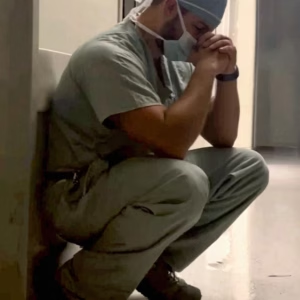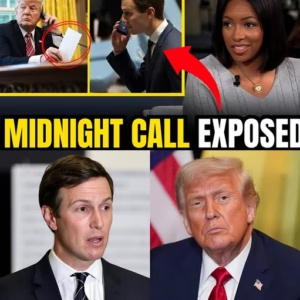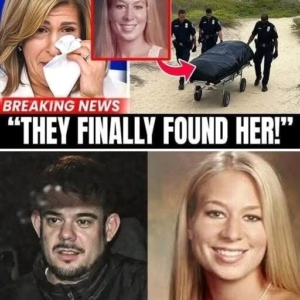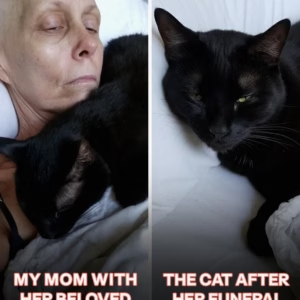When Ellie drove back into her hometown after thirty years away, she expected a rush of nostalgia — the familiar storefronts, the creak of the old bridge, the scent of honeysuckle in the evening air. Instead, what she found were ghosts.
The town looked the same, but the silence between the houses carried whispers. People who’d once waved now stared a beat too long, their curiosity sharpening into judgment. It was the kind of place where everyone remembered everything — or thought they did.
Officially, Ellie was there to help her aging mother move into assisted living. Unofficially, she had another reason — one she’d carried with her since childhood. Beneath an oak tree behind the old community park, she and her best friend, Jonah, had buried a time capsule. Inside, she remembered, was a brass key. Jonah had called it his “way out,” though back then, it sounded like one of his grand adventures.
They had promised to dig it up together when they were grown. Ellie had meant it. But life, college, and distance had pulled her away.
When she mentioned Jonah’s name that first night, her mother froze. “You don’t know?” she asked.
“Know what?” Ellie said.
Her mother sighed, setting her teacup down. “Jonah disappeared years ago. They said he stole money from the church — and there was that girl, the pastor’s daughter. She vanished too. People said he ran off with her.”
Ellie’s heart sank. The Jonah she remembered wouldn’t have done that. He’d been wild, yes — impulsive, always dreaming bigger than their small town — but never cruel. The rumors hung in the air like dust, thick and choking.
That night, unable to sleep, she drove out to the park. The oak tree still stood tall, its branches heavy and familiar, like an old friend waiting patiently. Moonlight spilled across the grass, and for a moment, Ellie was twelve again — muddy shoes, scraped knees, and Jonah’s laughter echoing in the dark.
She climbed into their old treehouse, now weathered and sagging, and began to dig beneath the roots. The soil was damp and heavy. Her hands trembled as she unearthed the small metal box.
When she lifted the lid, time seemed to fold in on itself. There it was — the brass key, tarnished but unmistakable. It lay atop a faded photo of the two of them grinning like fools, holding up their “treasure.”
She turned the key over in her palm. What could it have unlocked? A locker? A box? Or something Jonah never told her about?
Then a voice cut through the night.
“Ellie?”
Her breath caught.
From the shadows beneath the tree, a figure stepped into view. His hair was gray at the temples, his clothes worn, his eyes haunted but familiar.
“Jonah?” she whispered.
He nodded. “You shouldn’t have come.”
Before she could speak, he lunged forward, grabbed the key from her hand, and ran into the woods.
“Jonah! Wait!”
Instinct overruled fear. Ellie chased him — through the trees, over the creek they used to fish in, across the path lit only by shards of moonlight. Her heart pounded, the years between them collapsing with every step.
Finally, Jonah stopped at the edge of a crumbling house — his old home. The windows were boarded, the porch caved in. He turned, chest heaving, eyes wild.
“You don’t understand,” he said.
“Then make me,” Ellie replied.
For a long moment, he said nothing. Then the truth began to unravel.
He hadn’t stolen from the church. The money everyone thought he’d taken had been his mother’s — hidden away years earlier before she died. When the pastor’s daughter, Lily, came to him terrified and bruised, he used that money to help her disappear. She’d wanted to escape her father’s control, and Jonah gave her a way out.
When the pastor discovered both the money and his daughter were gone, he pointed the town’s anger at Jonah. And Jonah, knowing that if he stayed the truth would destroy her new life, ran.
“I didn’t run because I was guilty,” Jonah said, his voice breaking. “I ran because I didn’t want her to be found.”
Ellie’s eyes filled with tears. “All these years, they thought—”
“I know,” he said. “Let them. I was tired of fighting ghosts.”
A siren wailed in the distance — sharp, rising. Someone must have seen the commotion and called the police. Jonah glanced toward the sound, panic flashing across his face.
“They’ll arrest me,” he said. “They always wanted to.”
“You can’t keep running from a lie,” Ellie whispered. “You deserve your life back.”
He looked at her then — really looked — and for the first time, she saw the boy he’d been, buried beneath years of exile.
Slowly, Jonah placed the brass key back into her hand. “Keep it,” he said. “It unlocked my mother’s trunk — the one under the floorboards. Everything you need to prove what happened is inside.”
The sirens grew louder. Jonah straightened, shoulders squared. “It’s time,” he murmured.
When the police cars pulled up, lights flashing against the dark trees, Ellie stood silently as they led him away. He didn’t resist. As he passed her, he met her gaze, and something in that look — a weary peace — told her he was done running.
Later, Ellie used the key to open the trunk. Inside were letters, receipts, and a photograph of Lily taken years after she’d vanished — smiling, free, living under a new name. The truth was all there, waiting.
The town’s gossip fell apart in days. Jonah’s name was cleared. But it was too late for him to return to the life that had been taken. He chose instead to leave again — not hiding this time, but finally free.
Before he left, he met Ellie by the oak tree one last time.
“I used to think that key would open a door somewhere far away,” he said. “Turns out, it just unlocked the truth.”
Ellie smiled sadly. “And now?”
He looked out across the fields. “Now, it’s your turn to bury something new.”
When he walked away, the night air felt lighter. The weight that had hung over the town — over her — lifted at last.
Weeks later, Ellie placed the empty metal box back beneath the oak. This time, she buried not a secret, but a note that read: Some promises aren’t meant to hold you to the past. They’re meant to set someone free.
And for the first time in decades, she felt exactly that — free.





